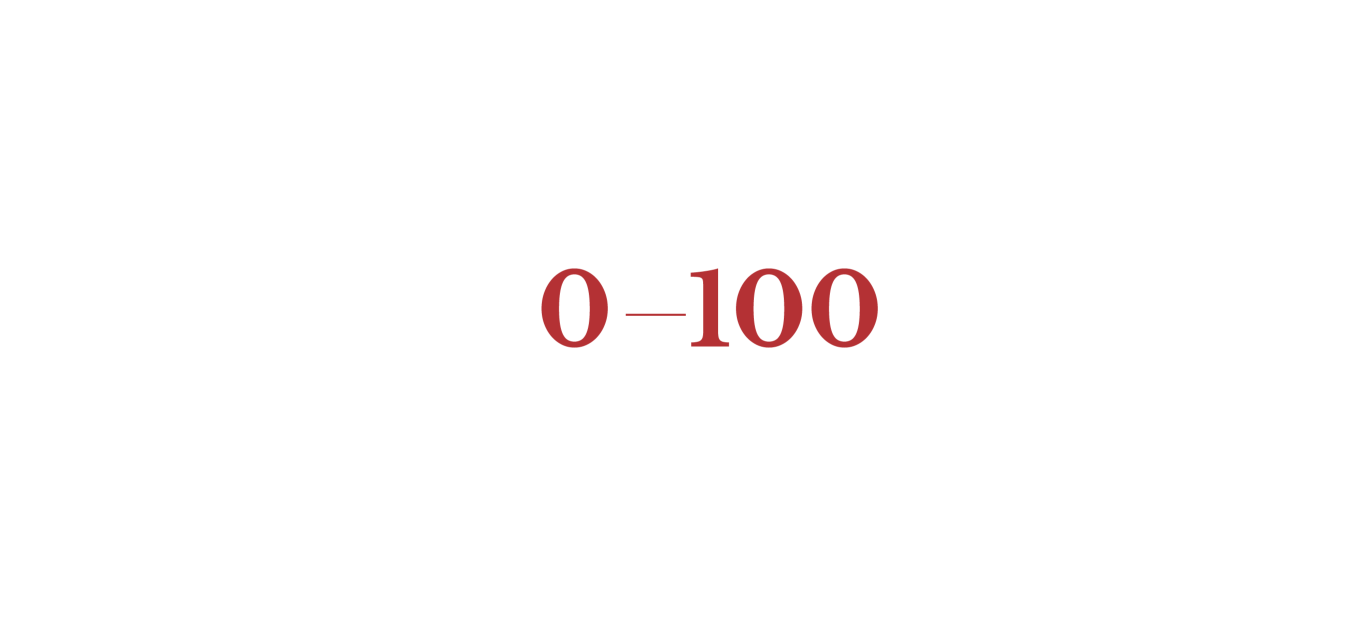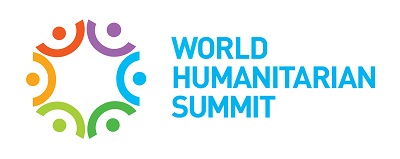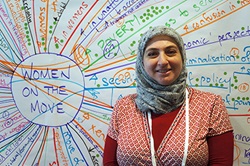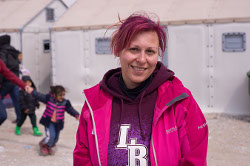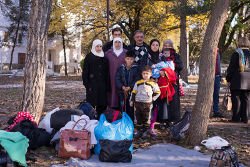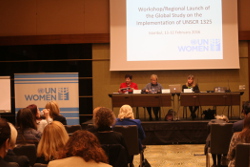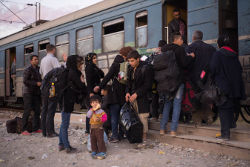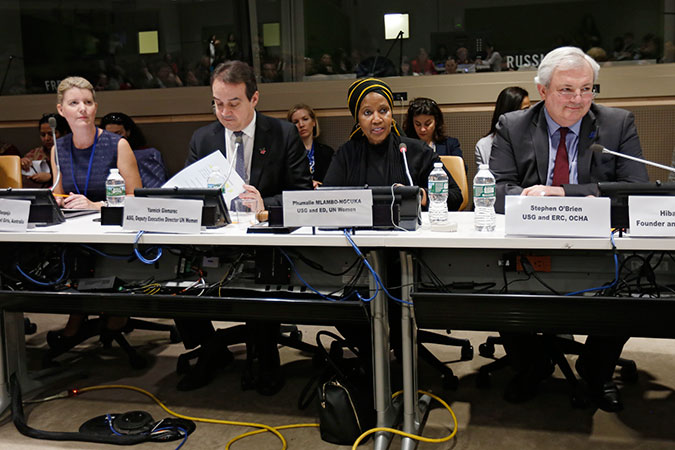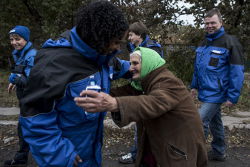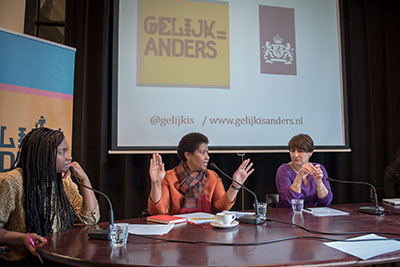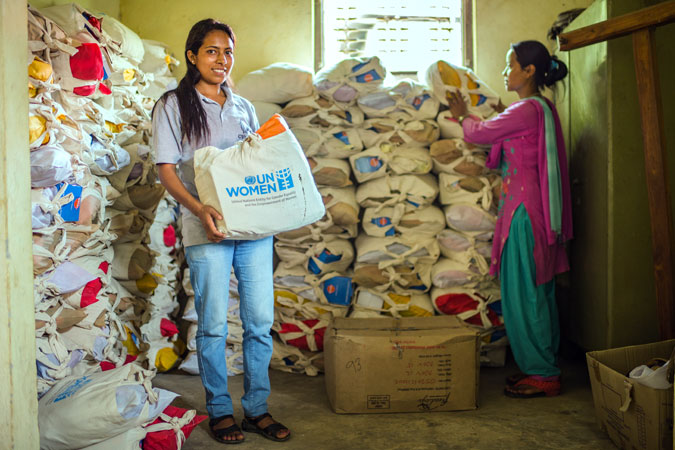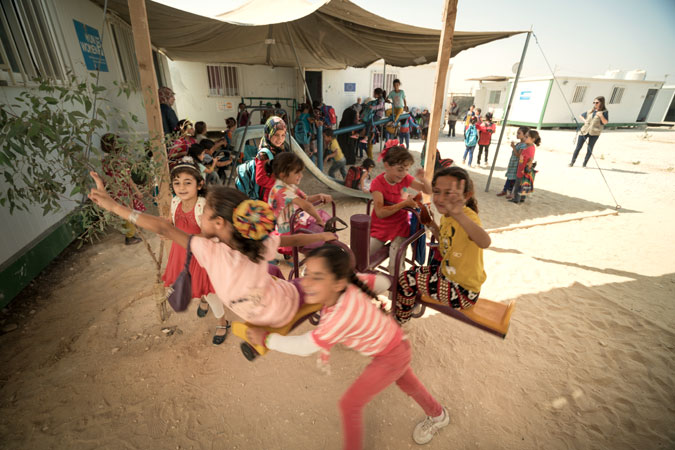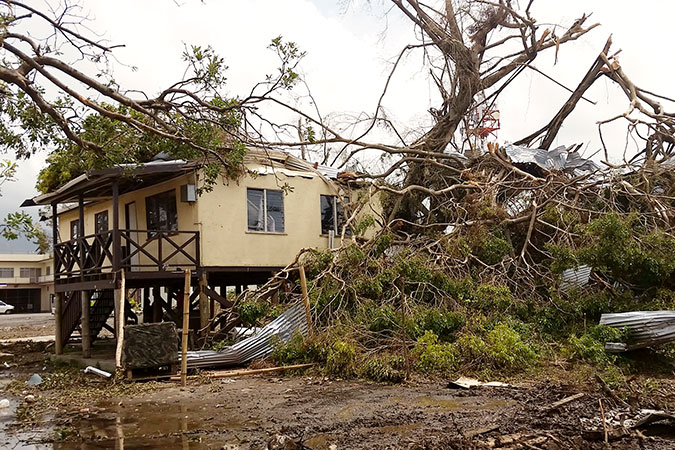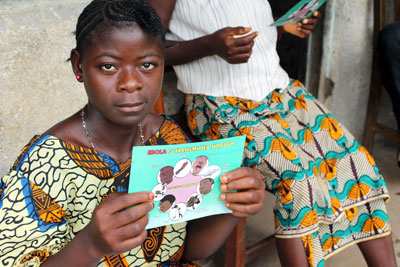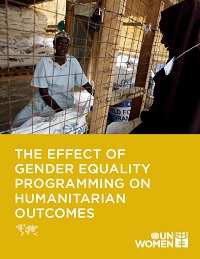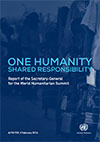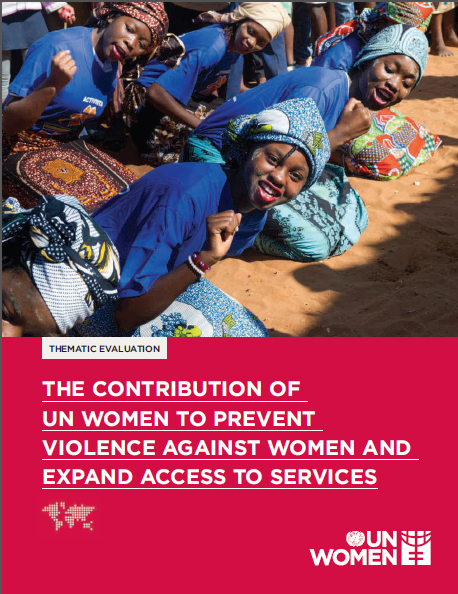Women in humanitarian action
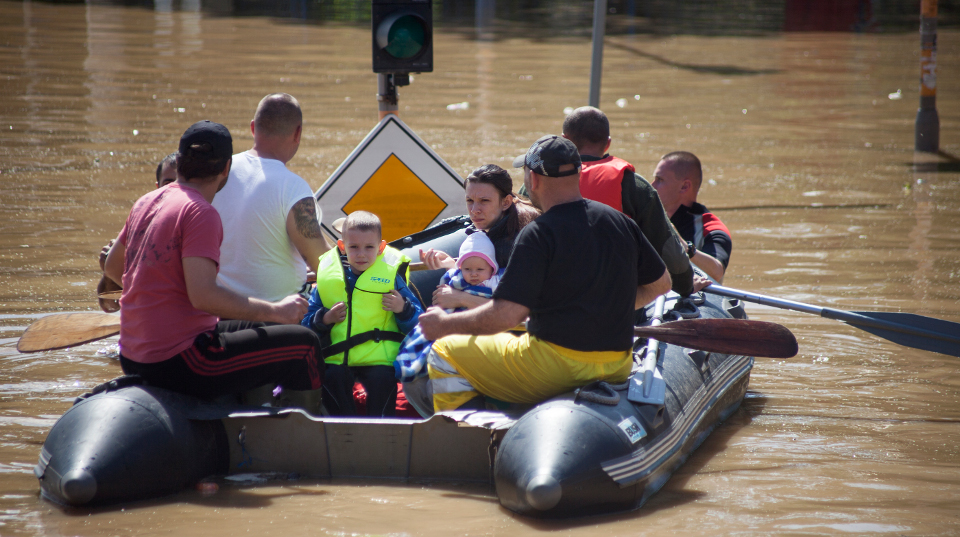
| News | Snapshot compilations | Publications | Join the conversation |
The issue
Disasters kill more women than men, and hit women’s livelihoods hardest. According to UN reports, 60 per cent of all maternal deaths take place in humanitarian settings and all forms of gender-based violence against women and girls spike during disasters and conflict.
Experience and research show that when women are included in humanitarian action, the entire community benefits. Despite this, women and girls are often excluded from decision-making processes that shape the response strategies that affect their ability and that of their community to recover from crisis. Women must be included in decision-making about the forms of assistance, means of delivery, and the provision of the protection and economic and social empowerment opportunities they need so they can be agents of change.
At the World Humanitarian Summit (WHS) in Istanbul from 23-24 May, UN Women is leading preparations for the High-Level Leaders’ Roundtable on Women and Girls: Catalyzing Action to Achieve Gender Equality. It will be one of seven roundtables at which leaders from Member States, the UN and multilateral actors, and civil society will come together to endorse commitments to improve humanitarian action worldwide.
The five commitments to be endorsed by stakeholders at the Roundtable include:
- Empowering women and girls as leaders and increasing support for local women’s groups to participate meaningfully in humanitarian action.
- Ensuring universal access to sexual and reproductive health and rights for all women and adolescent girls in crisis settings.
- Implementing a coordinated global approach to prevent and respond to gender-based violence in crisis.
- Ensuring that humanitarian programming is gender-responsive.
- Full compliance with humanitarian policies, frameworks and binding documents on gender equality, women’s empowerment and rights.
Ahead of the World Humanitarian Summit, we highlight UN Women’s continuous work to ensure equality between women and men as partners and beneficiaries of humanitarian action, by: making evidence of the differential impacts of disaster or conflict on women both available and understood; providing coordination so that UN and other technical teams have access to knowledge and expertise on gender; supporting capacity-building and agency of national actors, including women’s groups, parliamentarians and others; and providing targeted services, such as safe spaces or psychosocial counselling wherever there are gaps.
News
Civil Society advocates forge recommendations ahead of World Humanitarian Summit in Istanbul
UN Women and Oxfam brought together more than 50 refugee advocates from 15 countries in Europe, the Middle East and North Africa to formulate a joint position on how to respond to the challenges faced by refugee women and girls.
From Where I Stand: Sonja Dimitrijoska
As women migrants and civil society organizations meet in Istanbul for the "Women on the Move Conference", we might highlight the story of the Sonja Dimitrijoska is a humanitarian aid worker who helps support women and girl refugees in transit centres in the Western Balkans.
UN Women calls for effective protection fo refugee women and girls in the context of European Council Summit
In the context of European Council meeting held on 17-18 March 2016, UN Women calls for the specific needs and vulnerabilities of women and girls to be addressed in the response to the refugee and migration crisis.
Regional gathering helps foster women's solidarity in their push for peace in Europe and Central Asia
UN Women convenes government representatives, civil society activists and international institutions in Istanbul on 11-12 February 2016 to increase regional cooporation for women's participation in peace and security, and to end gender discrimination.
UN Women assesses the needs of Syrian women refugees in Serbia and FYR Macedonia
Women's specific needs and vulnerabilities are rarely at the forefront of humanitarian response planning and implementation, according to a recent UN Women gender assessment of the refugee and migration crisis in the Serbia and FYR Macedonia.
Gender equality must be at the core of humanitarian action says international community
At CSW60, government representatives, civil society groups and high-level UN officials highlighted the centrality of gender equality in humanitarian action and urged world leaders to make concrete commitments at the World Humanitarian Summit in May.
UN Women tackles gender and humanitarian impacts of Ukraine's eastern conflict
UN and civil society in Ukraine discussed how to integrate gender eqality and women's rights into humanitarian action at meeting organized by UN Women on 6 October 2015.
On mission in the Netherlands, UN Women Executive Director calls for action to protect women and girls fleeing from conflict
On her first official visit to the Netherlands from 23–26 January 2016, UN Women Executive Director Phumzile Mlambo-Ngcuka took part in a talk-show-style discussion with Dutch Minister of Foreign Trade and Development Cooperation Lilianne Ploumen.
A snapshot of our efforts globally
In the ongoing response to the April and May 2015 earthquakes in Nepal, UN Women has worked side-by-side with government, other UN agencies and women’s groups to highlight the distinct needs of women and girls, and to promote their role as meaningful participants in eventual recovery, reconstruction and development. At the one-year mark, we shine a spotlight on Nepali women and girls, their stories and their solutions. More »
During the ongoing conflict in Syria, UN Women has been actively supporting cash-for-work and other women’s economic empowerment programmes in refugee camps in Jordan and Lebanon as well as assessing the needs of asylum-seekers arriving in Serbia and FYR Macedonia. We’re advocating for the protection of women and girls against gender-based violence, and promoting their role as meaningful participants in peace talks, conflict-resolution and peacebuilding. More »
Cyclone Winston ravaged Fiji in February 2016. In its wake, UN Women has been supporting Government and UN efforts to ensure protection for the most vulnerable, including against gender-based violence. We’re also providing funds and technical support to local women and organizations as they help women access essential information, relief and protection services, and to rebuild the marketplaces that provided women with an income and food supply. More »
In countries affected by the Ebola virus, UN Women supported sensitization and advocacy to help curb its spread and mitigate its impacts. Gender in humanitarian action experts were deployed. UN Women worked with the UN Country Team in Sierra Leone to launch an Ebola Gender Mainstreaming Strategy at the height of the crisis in October 2014. And we supported a new maternal and reproductive health services unit at a government hospital.
More »
Publications
The effect of gender equality programming on humanitarian outcomes
Based on evidence gathered directly from crisis-affected populations, this study provides practical recommendations on the best means to integrate gender equality programming into future humanitarian interventions in ways that strengthen effectiveness and inclusiveness.
One humanity: shared responsibilityReport of the Secretary-General for the World Humanitarian Summit
United Nations Secretary-General Ban Ki-moon writes that the first World Humanitarian Summit is a time for Heads of State and Government, representatives of affected communities, aid organizations and others to discuss what can be done better to end conflict, alleviate suffering and reduce risk and vulnerability.
Evaluation: The contribution of UN Women to increasing women’s leadership and participation in peace and security and humanitarian response
The UN Women Independent Evaluation Office undertook this thematic evaluation of UN Women’s contribution to humanitarian response from 2012 to 2013. Its objective: to capture key results and lessons learned to inform future programmatic planning.
Gender assessment of the refugee and migration crisis in Serbia and FYR Macedonia This is an assessment of the international and national response to the refugee crisis in Serbia and FYR Macedonia from a gender perspective carried out in Fall 2015.
Join the conversation
The World Humanitarian Summit is the chance for your government to take a stand for the hundreds of millions of people suffering in the world—and to protect and empower women in humanitarian crises.
- Ask your leader to commit to action!
- Raise awareness about the specific needs of women and girls in humanitarian crises and help us spread the word about opportunities for women’s empowerment during crisis response! A social media package with sample messages in English, Spanish and French will be available soon.
- Find more social media content around #ShareHumanity and #Planet5050 on our accounts: @unwomeneca on Twitter; UN Women Europe and Central Asia on Facebook.
- Share your first tweet now! Tweet
Follow us
@unwomeneca on Twitter
UN Women Europe and Central Asia on Facebook
UN Women Europe and Central Asia on Flickr
